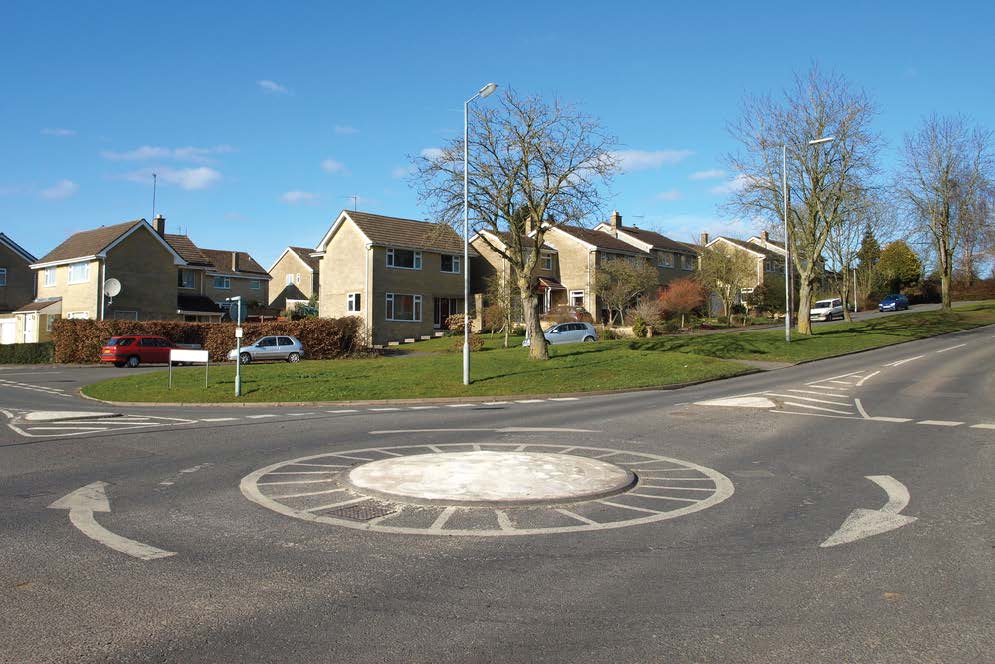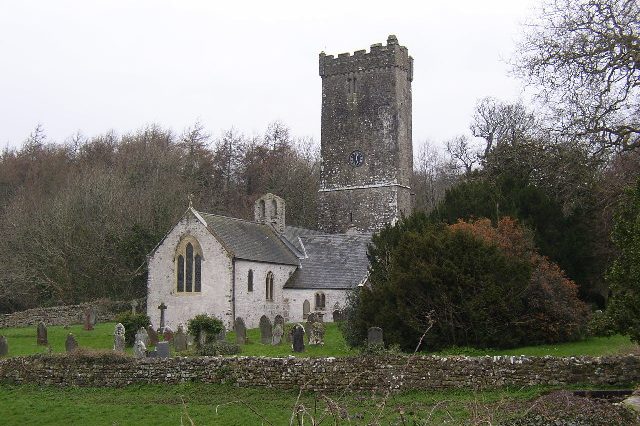Politics
Right to Buy discount halved

IT WAS ANNOUNCED last week that the Welsh Government had halved the maximum discount available under the Right to Buy scheme in an attempt to ‘protect the social housing stock’.
Earlier this year Communities Minister Lesley Griffiths announced her intention to end the scheme, which has been in existence since the early eighties when it was introduced by Michael Heseltine, Margaret Thatcher’s Environment Minister as part of the Housing Act (1980).
It is hard to think of a single policy which has been so divisive over the last three decades. It is, in effect, an ideological issue; with Free Market proponents on the one side advocating the power and responsibility taken from the state and given to the individual. Opposing this are critics who point to the drastic reduction in social housing over the time period, and the corresponding increases in homelessness and the use of public money to pay private landlords.
In Wales, 138,709 council-owned homes were sold under Right to Buy between 1981 and 2014 – leading to a reduction in the social housing available of 45 percent. Nationally 42% of the population lived in council housing in 1979 – by 2008 this had dropped to 12%.
The sale of council housing was originally meant to provide funds which would enable local authorities to pay back loans and build new properties. However, restrictions were placed on the proceeds of the sales, and councils found that they could not build any new social housing until these loans had been paid off. House building by local authorities in England and Wales dropped dramatically during the eighties, and has never recovered.
The Labour Government initially opposed the policy, but changed their position in 1985. Tony Blair’s government introduced caps on the discount available in areas short of social housing, and in 2005, the rules were changed to stop former tenants selling on the open market immediately after purchase. A five-year minimum residency before becoming eligible for the scheme was also introduced.
The policy was initially very popular among council tenants, and it was considered to have played a major role in Margaret Thatcher’s landslide victory of 1983, when in 1980 she had the lowest approval rating of any prime minister since records began.
However, repossession rates were notably higher than those for people taking out private mortgages, and homelessness across Great Britain trebled over the eighties. Another bone of contention for those opposed to Right to Buy concerned the burgeoning buy to let market, which in many cases saw ex-council housing stock rented out at considerably more than the local authority charged.
Because most of the council housing purchased was of good quality, and as a result of housing shortages leading to applicants being prioritized on the basis of need, many tenants found themselves living in areas of increasing social deprivation. Cuts to council maintenance budgets, and a dramatic increase in council rents contributed to this on a national level, and to some extent made Right to Buy a self-fulfilling prophecy for those who could afford it. By the mid-nineties, 95% of council tenants qualified for means-tested benefits.
There has been a rise in the number of social housing sales in Wales over the last five years, with 544 properties sold last year. In response to this, the maximum discount has been reduced to £8,000 from £16,000. Commenting on this, Lesley Griffiths AM said that “Right to Buy is depleting our social housing stock.
“This damaging policy is further increasing the pressure on our social housing supply and is forcing many vulnerable people to wait longer for a home,” she added.
“This is why the Welsh Government has taken decisive action to protect our social housing and make sure it is available for those who need it most. Today is a significant step towards our eventual goal of abolishing the Right to Buy and Right to Acquire in Wales.”
The Conservatives, unsurprisingly, disagree with this. Speaking earlier this year, Shadow Assembly Housing Minister Mark Isherwood said that the move ‘flies in the face of aspiration and ambition. It will limit supply and deny people in council properties the choice and power to buy their own home’.
Mr Isherwood announced the intention of the Welsh Conservatives to extend Right to Buy: “We would invest all the sales proceeds in new social and affordable housing to help tackle Labour’s housing supply crisis and take households off their record-breaking waiting lists,” he added.
“Scrapping the right to buy is further proof that it’s anti-aspiration; stuck in an ’80s socialist dogma where it believes the government knows best – not the individual. We must use every tool in the armoury to increase housing supply in order to make housing more affordable.”
Whether selling off social housing in order to make money which could potentially be used to build more is a viable solution to these ‘record-breaking waiting lists,’ or indeed whether the aforementioned 45 percent reduction in available social housing could have had anything to do with the current housing shortage remains unclear.
This also fails to take into consideration people living in social housing that is not covered by Right to Buy, and indeed the large number of people renting from private landlords, often because of a shortage of council housing.
In England, the Conservatives have announced proposals which would extend Right to Buy across all areas of social housing. However, the social housing provider would have to be compensated, thus meaning that the discounted price would have to cover the cost of a new equivalent house. This is meant to be funded through local authorities selling off their more expensive council houses when they become vacant, but research has shown that outside of London the figures often fail to add up.
News
Community asked for views on allocation of new St Davids homes

THE FIRST phase of Pembrokeshire County Council’s Glasfryn housing development in St Davids is progressing well with the second phase also underway.
The development being built by GRD Homes Ltd, began in November 2023, with a first phase completion date of Winter 2024 looking hopeful, ahead of the scheduled plans.
The first phase consists of seven properties, including a mixture of one and two bedroom bungalows
As completion draws closer the properties will be advertised via Pembrokeshire Choice Homes.
Ahead of this, the Council’s housing team will be holding community engagement on the 13th August 2024 at the Ty’r Pererin Centres, Quickwell Hill, St Davids, SA62 6PD, 5pm-7pm.
This will be a chance for officers to liaise with the local community about the allocation process for these properties.
Glasfryn’s second phase is well underway, with the initial groundwork already completed. This phase includes a further 11 two bedroom bungalows, with a completion date in late 2025.
These bungalows will meet the latest Welsh Government’s Development Quality Requirement, and will be energy efficient, built to EPC A specification and include solar panels to help tenants with running costs.
The Glasfryn development is funded in partnership with Welsh Government.
Cabinet Member for Housing Cllr Michelle Bateman said: “We are really keen to work with the community on a local lettings policy for these new properties, as we have done for our developments in other parts of the County.”
If you have any queries please email the Customer Liaison Team on [email protected], phone them on 01437 764551, or visit Housing’s Facebook page.
Business
Legal call to stop £6m expansion of holiday park still ongoing

A LEGAL request to overturn a Pembrokeshire County Council-granted approval for a £6m expansion of a south Pembrokeshire holiday park is still ongoing despite a previous announcement it had been turned down, county planners heard.
Back in February, Pembrokeshire planners were informed a legal challenge to a November 2023-granted application for works at Heritage Park, Pleasant Valley/Stepaside had been launched.
The holiday park scheme had previously been backed twice by county planners after a ‘minded to approve’ cooling-off period was invoked as it was against repeated officer recommendations to refuse.
The controversial scheme by Heritage Leisure Development (Wales) Ltd includes the installation of 48 bases for holiday lodges, a spa facility at a former pub, holiday apartments, a café and cycle hire, equestrian stables, a manège and associated office, and associated works.
It is said the scheme, next to the historic remains of the 19th century Stepaside ironworks and colliery, will create 44 jobs.
Officer grounds for refusal, based on the Local Development Plan, included the site being outside a settlement area.
Along with 245 objections to the current scheme, Stepaside & Pleasant Valley Residents’ Group (SPVRG Ltd) – formed to object to an earlier 2019 application which was later withdrawn – also raised a 38-page objection, with a long list of concerns.
A failed legal challenge to try and overturn a council decision to approve three separate planning applications at Heritage Park was launched in 2021 by SPVRG Ltd, which failed in early 2022; the council awarded costs of £10,000 despite external legal fees paid totalled £34,000 plus VAT.
At the June meeting of Pembrokeshire County Council’s planning committee members were told the recent judicial review call by SPVRG Ltd had been refused by the high court, the grounds put forward “not considered to be reasonably arguable”.
Committee chair Cllr Simon Hancock said a council request for SPVRG Ltd to pay costs incurred by the county council in defending the claim had now been submitted.
Following that, at the July planning meeting, in his chair’s announcement, Dr Hancock gave a clarification on the position.
“I can advise that whilst the application for judicial review was refused by the High Court Judge on May 31, 2024, the appellants have challenged this decision.
“This matter is listed for a renewal hearing, and accordingly the legal challenge is still in progress; I’m hoping that’s a clarification from the announcements I made back in June.”
Responding to the clarification, Trish Cormack of SPVRG Ltd pointed out it was not “an appeal,” adding: “Firstly, we are ‘requesting the decision to be reconsidered at a hearing,’ which is a bit less dramatic than ‘challenging the decision’.
“Secondly, the claim remains open for seven days after the decision on the papers in expectance of you requesting the hearing, and the form 86B comes attached to the decision with the case number already filled in for you. This is just part of the process for a judicial review. If the Judge really thought there were no merits to the case, he was free to issue a ‘without merits refusal’.
“That would have ended the claim there and then. The only way to resurrect it would have been to take it to the appeal court. But he didn’t.
“Thirdly, the announcement makes it sound like our ‘challenge’ had happened after their previous announcement, whereas in fact we only had seven days from May 31 in which to make the request, so they knew the moment we did (June 7) because we had to simultaneously email it to the court, PCC and the developer’s agent. So, they knew full well that there would be a renewal hearing.”
Farming
Farm building scheme near Lawrenny given go-ahead by planners

AN APPLICATION for a storage building at a south Pembrokeshire farm, made by a family member of an officer on Pembrokeshire County Council’s planning service, has been given the go-ahead by the authority’s planning committee.
In an application recommended for approval at the July 23 meeting of the authority’s planning committee, Laura Elliot sought permission for the erection of an agricultural storage building at Tedion Farm, a dairy farm near Lawrenny.
The application had been brought to committee, rather than being delegated to planning officers, due to the family connection.
The farm, near to the Pembrokeshire coast National Park border, comprises 270 milking cows and dairy heifer replacements kept on the farm comprising land over 138 hectares. The farm is mainly down to grass and the cows are paddock grazed in order to utilise grass efficiency.
No objections had been received from local community council Martletwy.
A report for members said: “The application seeks consent for the erection of agricultural storage building. The erection of an agricultural building will be used to store stay, hay and farm machinery.
“The building would be located within the existing farm complex, to the north-east of the site, adjacent to the main farm dwelling. The building will measure 18 metres in length by 13.6 metres in width, with a pitched roof height of 5.71 metres.”
Approval was moved by Cllr Alistair Cameron, seconded by Cllr Brian Hall.
-

 Education5 days ago
Education5 days agoMilford Tesco worker achieves Oxford dream and lands top legal job
-

 Crime4 days ago
Crime4 days agoHaverfordwest man admits having nearly 1000 child and animal images
-

 Crime4 days ago
Crime4 days agoYouth set to appear in court over serious sexual offences
-

 Crime4 days ago
Crime4 days agoPolice investigating after man injured during altercation in cemetery
-

 Education4 days ago
Education4 days agoPupils delight in ice cream treat from Pembrokeshire’s number one van
-

 Crime4 days ago
Crime4 days agoTown centre ‘stinking of skunk’ as police strip cannabis farm
-

 Crime3 days ago
Crime3 days agoFag-butt police court summonses spark debate in Pembrokeshire
-

 News6 days ago
News6 days agoProposal to give firefighters a council tax discount to go to Cabinet































